April Filings Due and New Contribution Limits!
Compliance filings can be tricky. I’ve been guiding clients through the labyrinth of filing requirements for 23 years. My goal is to provide you with the rationale, tips and traps to avoid when filing. I appreciate Dome Magazine's commitment to providing Legislators, staff and the people that support them with the information they need. Please check back here when you have questions or need to know where to look for answers. I will update the calendar and requirements as report dates are approaching.
Summary:
· New contribution limits effective January 2023
· April Due Dates for PAC’s & Ballot Committees
· Election Cycles
New Contribution Limits
Contribution limits are primarily based on election cycles and the office the candidate is seeking (re: the population the office covers). Contribution limits and election cycles are directly related; the longer a committee’s election cycle, the larger the committee’s contribution limit. For example, a Senate committee has a four-year campaign cycle and a $2,450 individual contribution limit, while a House committee has a two-year campaign cycle and a $1,225 individual contribution limit. Independent PAC contribution limits are 10 times the individual limit--$24,500 & $12,250 respectively. These limits are adjusted every four years.
Political and Independent Committees, Independent Expenditure Committees, Political Party and Ballot Question Committees may receive unlimited contribution amounts from a legal source.
Your committee’s campaign contribution limits can be found below:
April Filings due for State PAC’s and Ballot Committees
Common filing dates
Political Action Committees, Independent Committees and Independent Expenditure Committees
(Note: Leadership committees are technically a type of PAC)
In 2023 reports are due January 31st, April 25th, July 25th & October 25th
April report open/close dates for PAC’s are January 1st, 2023 - April 20, 2023 with a filing deadline of April 25, 2023 (unless your committee has/still qualifies for a waiver)
Ballot Question Committees (BQC’s)
Filing dates are for elections where BQC’s support or oppose a specific ballot proposal. Opening report dates can depend upon if the BQC was required to/filed a post-general election report or an annual report in 2022 (unless your committee has/still qualifies for a waiver). Filing dates can vary and are specific to the BQC’s activity. For example:
Will the committee support or oppose a ballot proposal appearing on a ballot during the calendar year? If your answer is…
Yes, the committee will support or oppose a ballot proposal appearing on a ballot in 2022; See 2022 Schedule A
No, See 2022 Schedule B
Yes, the committee will support or oppose a ballot proposal appearing on a ballot in 2023; See 2023 Schedule A
No, See 2023 Schedule B
(Source: Michigan Bureau of Elections website)
Report open/close dates for Ballot Committees depend upon the last filing date; the close of books is April 20, 2023, due on April 25th. To see BQC odd & even year report dates, see schedule here.
Tip: Know this when entering dates in your report…
The length of your committee’s election cycle (e.g. when it begins and ends) so that you can accurately track contribution limits (Senate is 4 years, House is only 2 years).
Contribution Limit Adjustment
Per MCL 169.246, adjustments to the dollar amounts of the contribution limits specified in MCL 169.252, 169.252a, 169.269 have been adjusted. The adjustments are effective January 1, 2023, for a period of four years.
Please visit our Contribution Limits page for the updated limits.
The content above is meant to serve only as a guide. Every filing situation is different and you should always call me at (517) 482-5311, or email your questions to Lfarnum@farnuminc.com. Visit the Bureau of Elections for more information (https://www.michigan.gov/sos/elections/disclosure/cfr) and consult with your attorney. 
